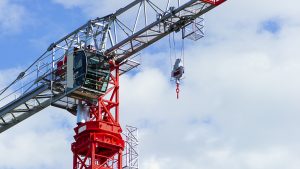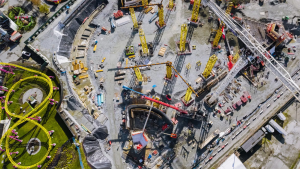While many of Ontario’s cities are calling for federal and provincial financial support to manage and expand public transit services and infrastructure, Quebec’s provincial government is finding itself saddled with a money pit known as the Laval Metro extension, which will link Montreal’s subway system to the Island of Laval.
Accusations fly over cost overruns
BY IRWIN RAPOPORT
DCN CORRESPONDENT
MONTREAL
While many of Ontario’s cities are calling for federal and provincial financial support to manage and expand public transit services and infrastructure, Quebec’s provincial government is finding itself saddled with a money pit known as the Laval Metro extension, which will link Montreal’s subway system to the Island of Laval.
Started in 1998 with a budget of $179 million, the extension called for a tunnel beneath the Rivieres des Prairies and the construction of three stations over a 3.5-kilometer route in Laval. The idea of the extension had been discussed and promised by governments for nearly 20 years.
The project is now expected to cost $809 million, a cost overrun that was highlighted last week by Quebec Auditor- General Doris Paradis in her annual report.
The previous Parti Quebecois government approved the project in 1998.
“The first government decision in 1998 was not based on documents showing the justification of the project, its costs, its location or the choice of the layout,” said Paradis, who attacked the project as badly managed and poorly planned from the start.
“Budgets were not realistic.”
The PQ gave the project the green light before the 1998 provincial election. Many saw this as a means to secure seats in Laval, a policy that succeeded.
But Paradis also lays blame on the Metropolitan Transport Agency, a public transit agency responsible for commuter train operations in the Montreal region and one that answers to the provincial government.
The MTA was charged with the responsibility for the subway extension. Paradis said that the MTA and the province’s Transport Department had ample opportunities to go over the plans as costs continued to grow, but noted that no actions were ever taken.
“Maybe people did not believe that the light was red, maybe some didn’t want to believe it,” she said.
Quebec Transport Minister Yvon Marcoux blamed the former government for the soaring costs.
“It was improvised and it is a major responsibility, in my opinion, of the previous government,” he said.
But opposition leader and former premier Bernard Landry claims the project was necessary and that politics had no bearing in the decision to go forward with the project.
“It’s a big, big mistake of prediction, but it’s not a mistake of the decision- making process,” he said.
“It’s important for the taxpayers to know that no money was spoiled. There was an error of prediction which is related to many things, including the overheating of the economy in those years.”
However, Florence Junca-Adnot, the executive director of the MTA from 1996 to November 2003, insists that she cannot be blamed and that she consistently warned the government that the extension would cost more than the projection.
Moreover, Junca-Adnot insists that her warnings were ignored.
At a news conference last week to defend her record and reputation, Junca-Adnot made the following points:
• That from the start, the MTA thought the Metro extension was not the best solution for public transit in Laval.
• That other scenarios were studied and that the MTA believed that a light train service to be more cost-efficient.
• That the government was more concerned with following through on an election promise when replying to MTA concerns and that the MTA was told to complete the project for a maximum of $345 million.
• That the government was told in May 2002 that MTA estimates saw the project costing between $520 and $560 million and that it could not be done for less. In reply, the government essentially said, “Start the project with a $345-million envelope and when we get to cost overruns, we’ll consider it from there, we’ll re-evaluate it from that point.”
When asked why she didn’t refuse the government’s command to extend the Metro, Junca-Adnot essentially stated that she and her employees were not elected officials, felt obliged to obey orders from the government and that if the government wanted an extension, that the it wasn’t up to the MTA to tell them otherwise.
The auditor-general does not rule out higher costs for the Metro extension and in an effort to avert more taxpayer dollars being funneled into the project, the transport minister has established a committee of experts to oversee the extension until it is completed.
“They will find a way to stop the going up of the costs and try to contain the costs,” said Marcoux.
“That will be a major objective.”










Recent Comments
comments for this post are closed